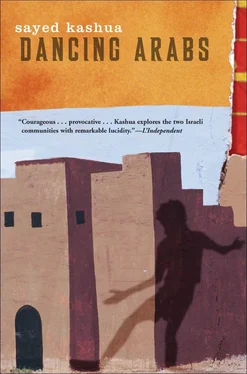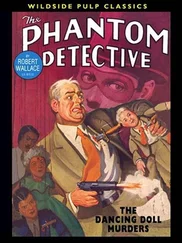My Only Friend in Tira Was Hospitalized
My only friend in Tira was hospitalized. We were in the eighth grade. He was the only kid who was willing to sit next to me in class without the teacher making him.
One day he didn’t come to school. On my way home, I knocked on his door, but nobody answered. His uncle in the neighborhood grocery store said he was sick. He had a headache, and they’d taken him to the hospital in Ramatayim. My parents dressed up. My mother bought a bag of snack bars and wrapped them the way you wrap a gift, and we drove off to visit him.
It was my first visit in Ramatayim and the first time I’d seen a hospital. It had an enormous gate and two heavy doors at the entrance that you couldn’t open unless you were a doctor and knew the code. His parents looked sadder than usual. He was an only child. My father said his mother had such a nice ass he couldn’t understand why they had just the one.
No one was allowed in to visit him except me. My friend looked the same as always. He said that sometimes his head hurt and he would hear strange things. I didn’t pay any attention. He looked fine to me, didn’t even have a fever. Next to the other bed in the room there was a kid who was holding a broom and pretending to shoot. He was a little older than us, and he liked to play war. My friend said that whenever they played together, the kid kept saying, “He’s an Iraqi, he’s an Iraqi.”
My friend’s parents had bought him a computer game with cars, and he let me play with it. My parents would never buy me such an expensive game. I always envied him. He never ate Popsicles, only fancy ice cream bars. He had a bike and nice clothes, a watch with a calculator, and an Atari. My mother said it was because he was an only child. She couldn’t afford fancy ice cream bars for all four of us.
He was the only one of my friends who didn’t get on my mother’s nerves when he came to visit. She claimed the other parents sent their kids over to our house just to get rid of them, and she asked me not to let them in, but when it came to him she was always nice and even invited him to join us for a meal. He usually declined.
Father kept saying he couldn’t understand why they didn’t have another kid. They had plenty of money, after all. And what if something happened to that kid? My friend’s father owned an enormous tractor with a windshield and an air-conditioned cab, and my father said he plowed every field in Tel Mond, working from dawn till dusk, and wouldn’t pass up a single job. They had a new car, and it always stood right outside their home, covered by a white tarpaulin. They hardly ever used it, it was just for appearances, my father said. They never went out. My friend’s father only used the tractor, because on Fridays and Saturdays when he wasn’t working for the Jews he’d be plowing the fields in Tira.
Suddenly, in the middle of the game, my friend went berserk. He started screeching “Laaaaa! Laaaaa!” and in no time at all lots of male nurses showed up, took me out of the room, and tied my friend to the bed. It was scary. I’d never seen anything like it. I asked my parents what had happened, and they said we had to go home.
We didn’t talk at all on our way back to Tira. Father drove in silence, with Mother beside him and me in the back, as usual. My parents wouldn’t let me sleep with my grandmother anymore by then, but that night they pretended not to notice when I sneaked into her bed. They told her what had happened at the hospital.
“They shouldn’t have taken you,” she said, and hugged me tight. “Don’t cry. God will cure him, he’ll be back at school, you’ll see. Go to sleep. Don’t be scared, ya habibi, yamma. ”
Things seemed to be booming in those days. In my final year at grade school, they paved the road to Tira and hooked us up to the phone system, the soccer team moved up a league, they opened a swimming pool, and someone in Taiyiba connected the houses to cable TV.
Every single house in the village was hooked up. Nobody watched anything else, only closed-circuit cable. Everyone simply loved to watch people they knew appearing on TV. They saw them in the grocery store commercials that were shown between Indian or Egyptian films.
During Ramadan of that year, which took place in summer, they decided to hold a quiz show on cable, with prizes. Everyone in the village was allowed to take part. Within two days the quiz became a battle of honor, and every family in the village took it seriously. Some families would gather every day, to count how many of them had succeeded in giving the right answers and to prepare for the following day. The elections were coming up, and the competition between families was at an all-time high. Every family was hoping to strengthen its position in the village through the quiz show. Our family was one of the oldest in the village, but it was very small, and my father knew full well that we didn’t stand a chance in the elections. By the time the quiz show was over, Father knew whom to vote for.
Father didn’t miss a single screening of the quiz show on cable. The questions were very easy at first, like “When was the Prophet Mohammed born?” and Father would answer right away. His lips would mouth the quizmaster’s text. Obviously, he had no intention of phoning in himself or of taking part with all those idiots who got caught up in their silly games. But the truth was that Father wasn’t a hundred percent sure of himself, and he’d always wait to hear whether his answer had been confirmed by the quizmaster after some other listener had phoned in.
One day, the people on cable decided to ask some tough questions, the really tricky kind, with complicated clues. It was the middle of Ramadan month by then, and the struggle over the cable quiz had completely taken over life in the village. It was the only thing people talked about. Some said the quizmaster would only take calls from his own relatives and demanded a panel of judges with representatives of all the families in the village to supervise the competition while it was being aired.
That’s when the toughest question of all was presented. It had been written by the school principal, who was the quizmaster’s father. The larger families got their act together and started sending representatives to the cable station — huge guys who could beat the hell of out of you — to observe things from up close. This ritual show of strength gained momentum, to the point where there were so many representatives you could hardly see or hear the quizmaster asking the questions.
People got into squabbles on the air or shoved each other, and every now and then someone would let out a salvo of curses that could be heard in every home in the village. The cable people realized it was time to do something, and they moved the quiz to the soccer field. The only ones who watched from home were the deep thinkers and speed-dialers in each household. All the others took their places in the field as soon as the fast was over for the day. People swarmed through the streets toward the soccer field, almost running, before they’d had a chance to digest their hurried post-fast meal.
Father hadn’t taken any part in the game up until then. He and the principal had been in the same class, and he always used to tell us how the principal had been a nobody when it came to schoolwork and had gone to some second-rate teachers college. His grades — Father’s, that is — were the best in his class, and if he’d had enough money to finish university he would have become a doctor long ago.
The day the competition moved to the stadium was when they announced the Big Question. When my father heard that the principal, his classmate, had composed the hardest question, he stood up and plodded heavily toward the TV. “Get me a pen,” he commanded. “Now, be quiet.” And when the quizmaster repeated the question, Father wrote it on his palm:
Читать дальше












